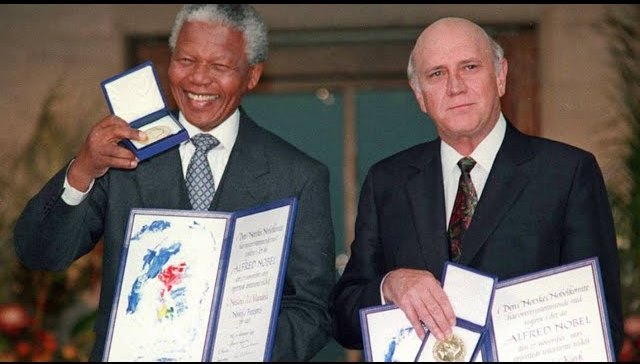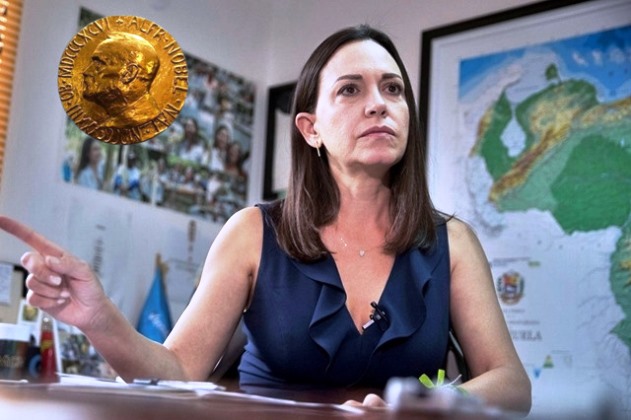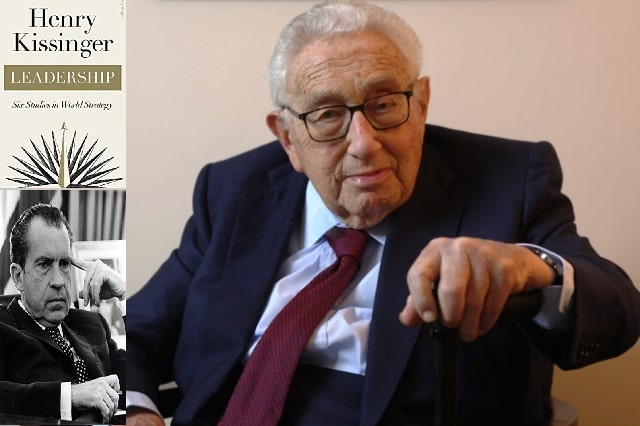Mahatma Gandhi was nominated several times for the Nobel Prize – in 1937, 1938, 1939, 1947, and again in 1948, the year he was assassinated, reports Al Jazeera. He was killed on January 30 after a prayer meeting in Delhi by a Hindutva fanatic – Nathuram Godse. Given the organized polarization in India since the summer of 2014, Godse is these days eulogized by certain extremists, often publicly.
Significantly, the Nobel Committee did not declare an award in 1948. They said that there was “no suitable living candidate”. This was widely interpreted as a tacit admission of guilt for having ignored Gandhi all these years.
So, why did they choose to do that?
The Nobel Prizes are named after Alfred Nobel (1833–1896), a Swedish businessman and chemist. He is famous for inventing dynamite, which might have done wonders for the colonial empires in colonised countries, and capitalists into mining and construction, but the explosive has also led to thousands of deaths in war zones. Besides, mining and mindless construction (in sensitive eco-systems) has often led to mass displacement of ancient, indigenous communities, especially in mineral-rich forest and tribal land, and universal destruction of local ecology.
Nobel left millions to fund this annual event, so as to recognise those who “have conferred the greatest benefit to human kind”.
French philosopher, existentialist and novelist, Jean Paul Sartre, rejected the prize in literature in 1964. He said that he did not want to be ‘institutionalised’, had no desire for ‘official honours’, because it would cage him and his writing. He and his life-long comrade, Simone de Beauvoir, who wrote the path-breaking book, The Second Sex, were iconic figures in the non-dogmatic Left-progressive struggles in France, and across the globe, and ardent admirers of the Cuban revolution and Fidel Castro and Che Guevara. Simone de Beauvoir never got the award, despite being nominated several times.
Nelson Mandela, after spending 27 years condemned in prison, led the anti-apartheid struggle, which became a global symbol against organised racism and cruelty, with most countries in the world boycotting the White apartheid regime backed by the US, UK, and their western allies, who have been now supporting the on-going genocide in Gaza. It was Britain which sowed the seeds of this bloody conflict, siding with the formation of a “national home for the Jewish State of Israel” in Palestine, since the Balfour Declaration of 1917.

Mandela was awarded the Nobel Peace Prize in 1993, along with an undeserving FW de Klerk, who presided over the end of the apartheid era in South Africa. Till this day, the people of South Africa bond with the people of Palestine, because of their shared liberation struggle. It was South Africa which led the campaign against Benjamin Netanyahu’s mass murder regime in the International Court of Justice, invoking the 1948 Genocide Convention.
Among the most controversial awards was the one conferred on Barack Obama in 2009, weeks after winning his first term. He arrived as a refreshing departure after George Bush, who devastated Iraq with NATO and his lackey, Tony Blair. Thousands were killed. They claimed that Iraq had WMDs, which were never found, in what was clearly a ‘blood for oil’ war.
Obama’s wonderful rhetoric and good intentions seemed short and sweet. His Secretary of State, Hillary Clinton, waged war on Libya, and the ghastly mob-lynching of Muammar Gaddafi as a public spectacle is etched in the minds of most Americans who voted against her in 2016.
The destruction of Syria was the next feather in the cap for Obama. His legacy will be remembered as a powerful and popular president who could turn the tide, but, in the end, got sucked in by the status quo, of which he was an integral part. Did you hear anything from him during the last two years of genocide in Gaza?
ALSO READ: Kissinger’s Attempts To Airbrush Nixon Fallacies
Henry Kissinger and North Vietnamese politician Le Duc Tho were given a joint Noble prize in 1973, for the Vietnam Peace Accord. Le Duc Tho declined the award, arguing that the ceasefire was not working.
Earlier, the Americans had waged a 20-year long devastating war on this small peasant country, killing thousands, including in the infamous My Lai massacre in a village whereby 500 unarmed women, children and men, were murdered. The horrifying picture of a little naked girl running from a napalm bomb, which would burn through the skin and flesh, became a stark reminder of American brutality.
The BBC reports (December 3, 2023) on his death at the age of 100, in a piece titled, ‘Henry Kissinger’s Cambodia legacy of bombs and chaos’: “During the Vietnam War, Kissinger and then-President Richard Nixon ordered clandestine bombing raids on neutral Cambodia, in an effort to flush out Viet Cong forces in the east of country… Ben Kiernan, a historian at Yale University and a leading scholar on Cambodia, has estimated that around 500,000 tons of US bombs were dropped on Cambodia between 1969-1973…”
It reports: “After his death, George W Bush said the US had “lost one of the most dependable and distinctive voices on foreign affairs”. Tony Blair said that Kissinger was an artist of diplomacy, who was motivated by “a genuine love of the free world and the need to protect it”.
(Blair is bad news. He is tipped to be a big player, nominated by Trump, in post-ceasefire Gaza. For all you know, he too might be fishing for a Nobel Prize for peace).
The BBC further reports: “Vorng Chhut, 76, had never heard the name Henry Kissinger when bombs started dropping down on his village in Svay Rieng province, near the Vietnamese border… Nothing was left, not even the bamboo trees. People escaped, while those who stayed in the village died, he said. ‘A lot of people died, I can’t count all their names. The bodies were swollen and when it became quiet, people would come and bury the bodies’.”
A Pentagon report released in 1973 stated that “Kissinger approved each of the 3,875 Cambodia bombing raids in 1969 and 1970” as well as “the methods for keeping them out of the newspapers”. “It’s an order, it’s to be done. Anything that flies, on anything that moves. You got that?” Kissinger told a deputy in 1970, according to declassified transcripts of his telephone conversations. The number of people killed by those bombs is not known, but estimates range from 50,000 to upwards of 150,000, the BBC report said.
Maria Corina Machado has won the Nobel Peace Prize in 2025. For many, it is an outrage. She is widely reported as an ardent supporter of Israel, Trump and his politics, big business and privatization unleashed, and is branded as an American agent by her critics.
Media reports point out that Machado had asked Benjamin Netanyahu, to help “liberate” Venezuela. That she helped the 2002 coup in Venezuela that briefly overthrew a democratically elected president, the hugely popular Hugo Chavez; and that she was backed by Washington, as is its legacy, for instance, in Chile.
In Chile, the US was reported to be behind the coup which led to the ouster and murder of a democratically elected Salvador Allende, close friend of great poet, Pablo Neruda. Then they propped up notorious dictator, Augusto Pinochet, who jailed and murdered thousands of dissenters, including famous musician and activist Victor Jara.
Machado has reportedly said that if she wins, she will open an embassy in Jerusalem, thereby whole-heartedly backing the apartheid occupation of Palestine. Her party, Vente Venezuela, is known to have signed a cooperation deal with the right-wing Likud, the ruling party in Tel Aviv, on “political, ideological and social issues… strategy, geopolitics and security.”
Machado posted on X: “We are on the threshold of victory and today, more than ever, we count on President Trump, the people of the United States, the peoples of Latin America, and the democratic nations of the world as our principal allies to achieve freedom and democracy. I dedicate this prize to the suffering people of Venezuela and to President Trump for his decisive support of our cause!” She is currently in hiding.
However, for those who were pitching for Francesca Albanese, Greta Thunberg, and the children, doctors, paramedics, nurses and journalists in Gaza, dead and alive, the Nobel Peace Prize might be a typical case of eyes-wide-shut. Remember the case of Mahatma Gandhi?
And, of course, Henry Kissinger?

